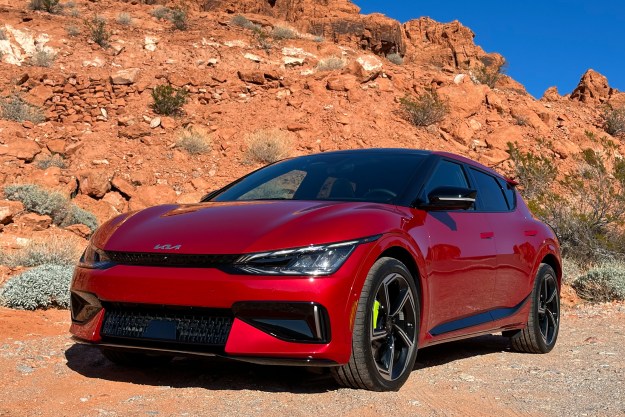Apple has abandoned its efforts to build an electric car, according to a Bloomberg report on Tuesday that cited people with knowledge of the matter.
The tech giant has been working on the ambitious project for about the last 10 years, though during that time, it never spoke publicly about it.
News of the decision to wind down efforts on the so-called “Apple Car” was delivered on Tuesday by Chief Operating Officer Jeff Williams and Kevin Lynch, an executive in charge of the project, to the 2,000 or so people working on it, Bloomberg said in its report.
It’s not clear why Apple has made the decision, though it’s possible that constantly changing design plans, issues finding a manufacturer, spiraling development costs, and a cooling electric-vehicle market may have all played a part.
Many of those on the car team will apparently be moved on to projects linked to generative-AI, an area of increasing focus for tech firms big and small. However, it seems likely that there will be some layoffs among the several hundred hardware engineers and vehicle designers who have been working on Apple’s car project.
Bloomberg reporter and Apple tipster Mark Gurman described Apple’s decision to abandon work on its electric car as “a bombshell for the company” after spending billions of dollars on it over the last decade. Meanwhile, Elon Musk, chief of electric automaker Tesla, posted a saluting emoji and a cigarette on social media, apparently relieved that his company no longer has to face the prospect of taking on what could’ve been a tricky competitor.
Apple’s car has been in and out of the news over the years, with a steady stream of leaks suggesting plenty of turbulence and uncertainty regarding the direction of the project. The top team changed a number of times, as did design plans, according to multiple reports.
The original idea had apparently been to build a fully driverless electric vehicle sans steering wheel and pedals. But then the Cupertino, California-based company watered down the plan by designing a vehicle with some advanced driverless features for highways. Apple reportedly pivoted again just recently with a plan to create an electric vehicle with even fewer self-driving features.
The last we heard was that Apple was targeting 2028 for the launch of its car. But now it seems that the company has finally given up on the entire project, bringing the curtain down on a challenging endeavor that apparently proved more trouble than it was worth.
Digital Trends has reached out to Apple for comment on the reported development and we will update this article when it responds.
Editors' Recommendations
- Some on Apple’s failed car project reportedly had a cruel name for it
- New Model 3 ‘takes out the baby fat,’ Tesla designer says in new video
- An Apple car won’t be coming in 2026 after all
- This couple just did something remarkable in an EV
- Bold style alone can’t muscle Chevy’s new Blazer EV to the head of its class



